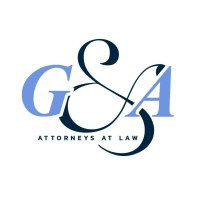Queens County, NY Bankruptcy Lawyers
Sponsored Law Firm
-
 x
x

Click For More Info:
-
The Michelson Law Office
203 North Lasalle Street Suite 2100 Chicago, IL 60601» view mapBankruptcy, Chapter 7, Chapter 13 Chicago Bankruptcy Lawyer
When your finances are at stake, choose the best. Don't sink deeper in debt. Contact The Michelson Law Office
800-824-6431
Includes: Bankruptcy Litigation, Commercial Bankruptcy, Consumer Bankruptcy, Dissolution
Gehi & Associates
✓ VERIFIEDImmigration, Asylum, Deportation, Divorce, Bankruptcy
An Internationally Renowned Law Firm Based in New York. We handle immigration cases in the United States and all over the world.
Heather Lynn Gregg
Bankruptcy, Commercial Real Estate, Condominiums, Contract
Status: In Good Standing
FREE CONSULTATION
CONTACTNathan Erlich
Business & Trade, Corporate, Banking & Finance, Bankruptcy
Status: In Good Standing Licensed: 34 Years
David Michael Kasell
Commercial Real Estate, Motor Vehicle, Collection, Bankruptcy
Status: In Good Standing
Allan R. Bloomfield
Divorce, Consumer Protection, Bankruptcy
Status: In Good Standing Licensed: 49 Years
Martin Caling Chow
Real Estate, Litigation, Lawsuit & Dispute, Commercial Bankruptcy
Status: In Good Standing Licensed: 29 Years

 Abraham Michelson Chicago, IL
Abraham Michelson Chicago, IL AboutAbraham Michelson
AboutAbraham Michelson Practice AreasServices
Practice AreasServices

